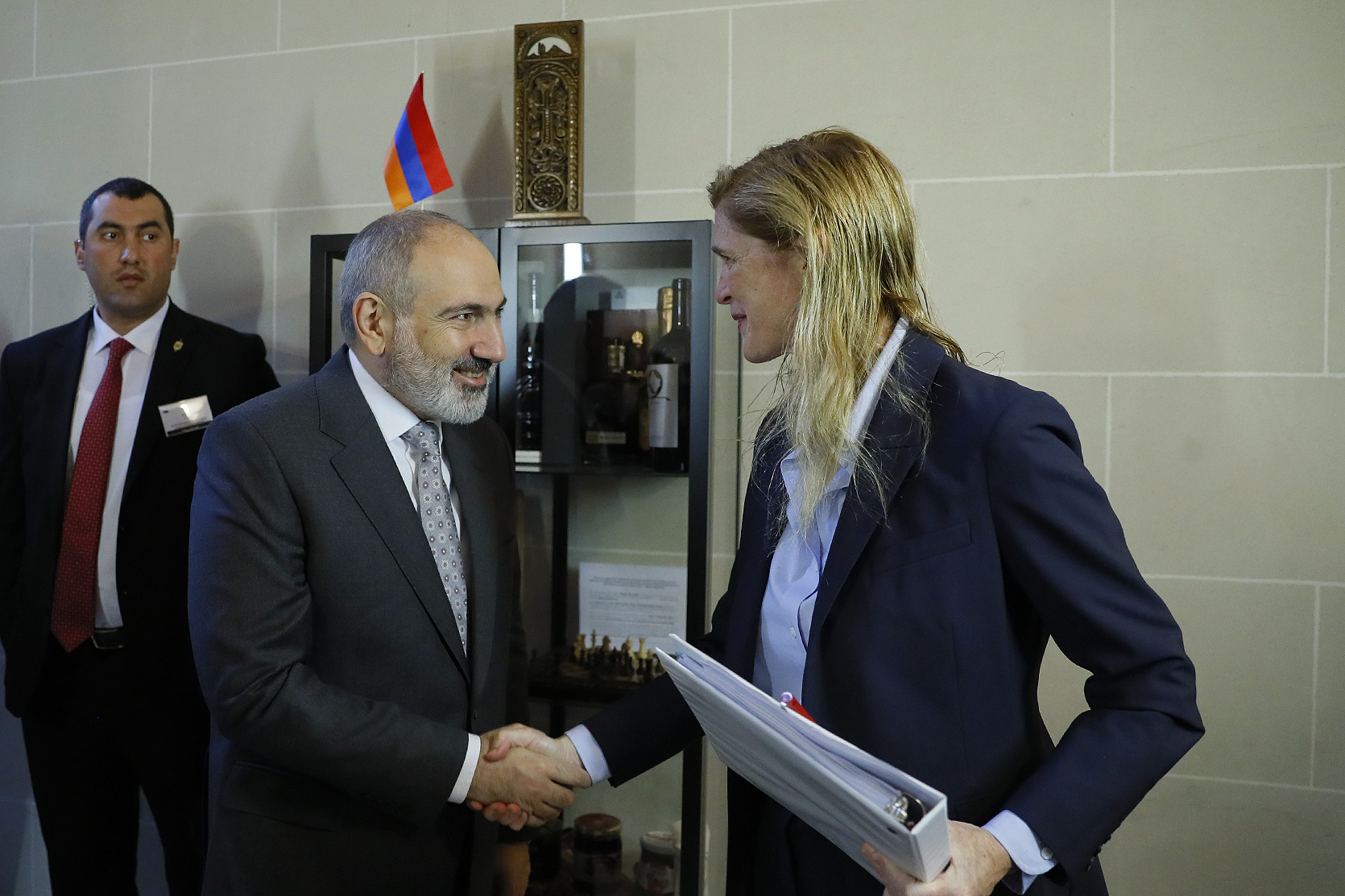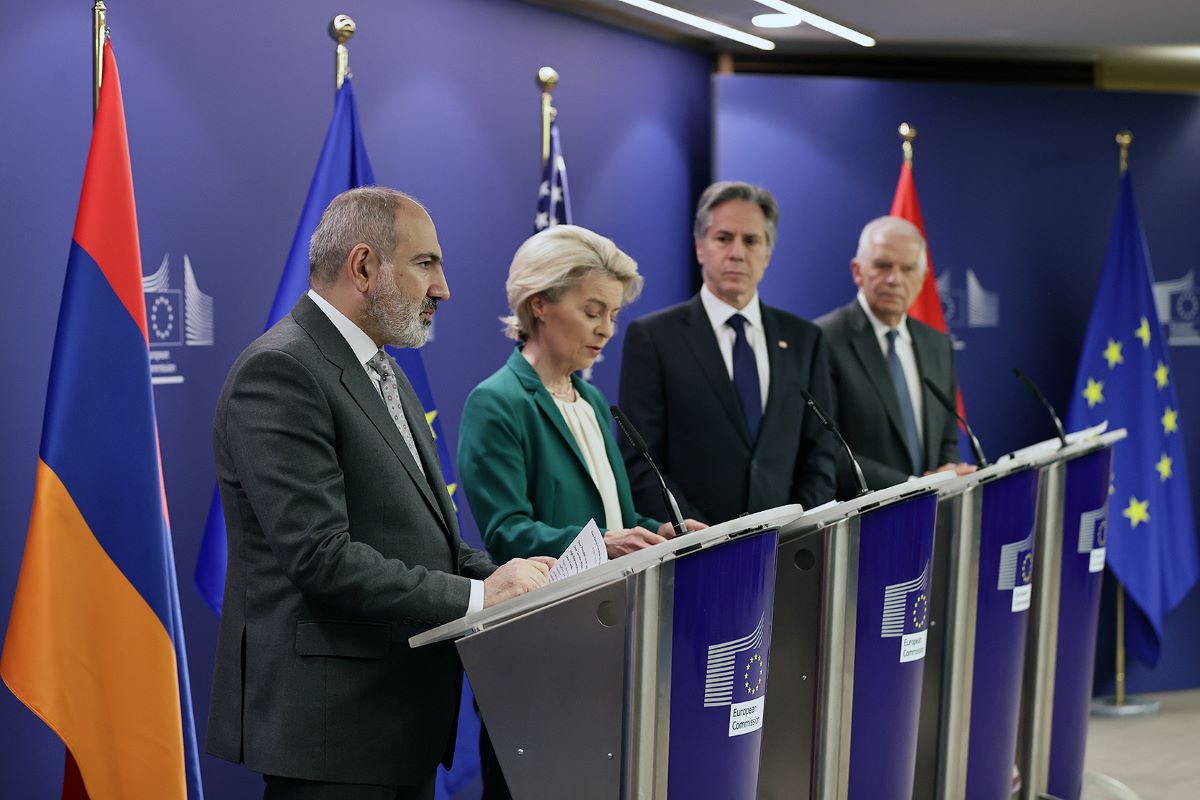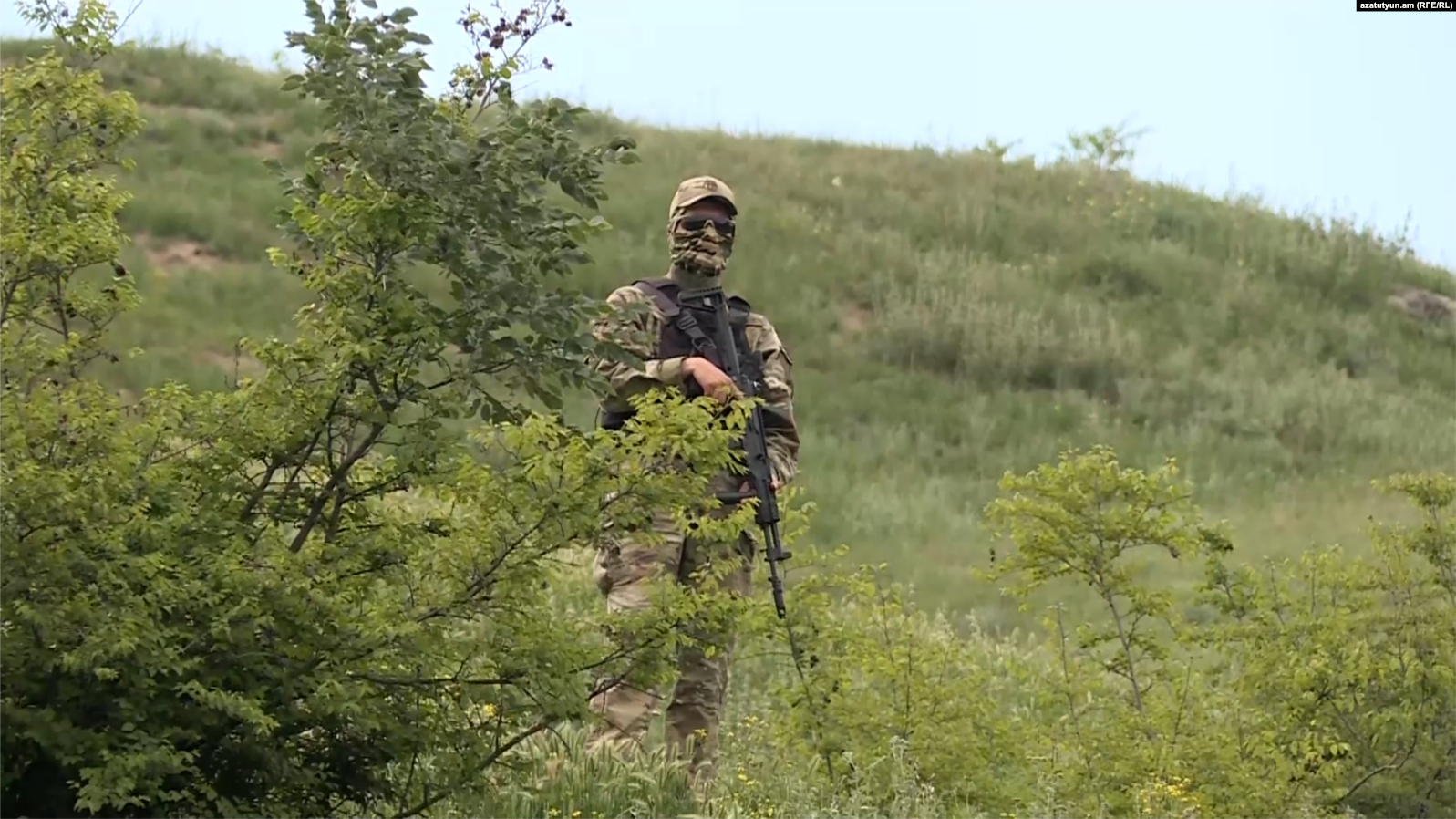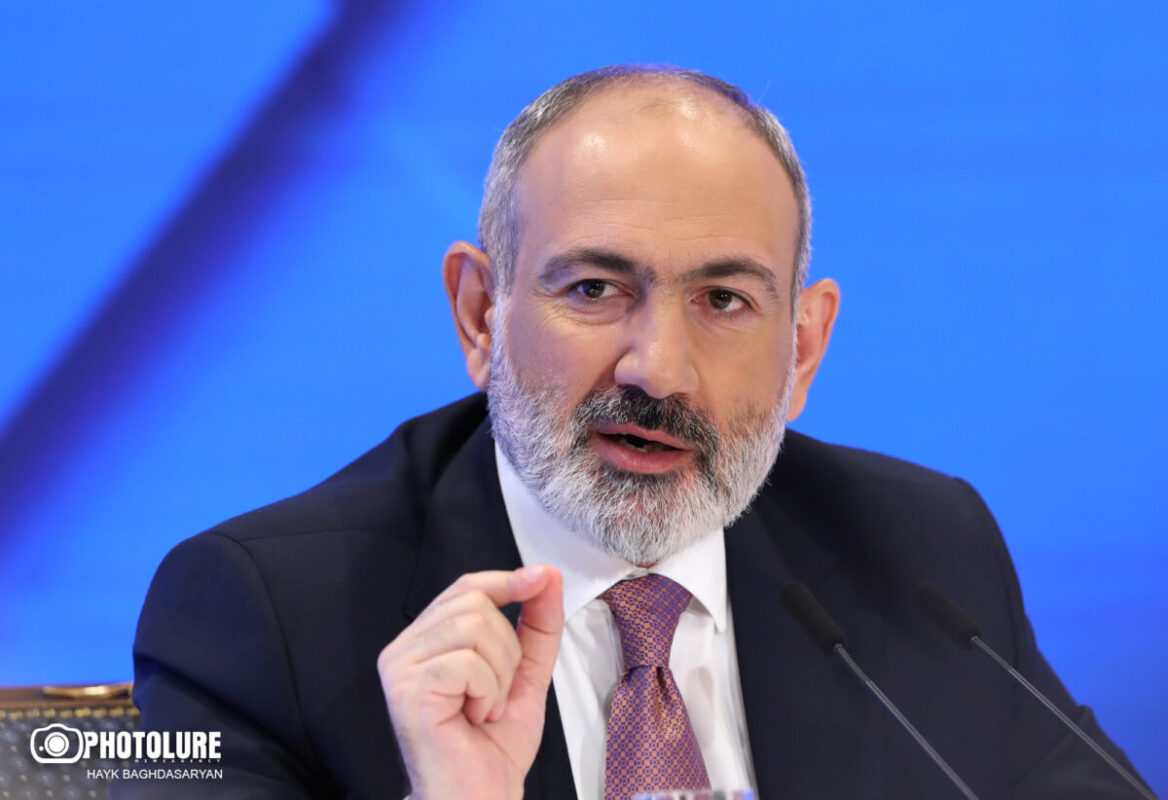Armenia-U.S. relations progress: O'Brien's visit to Yerevan
O’Brien in Yerevan, Armenia-US relations
Local media in Armenia have been abuzz for the past two days about the deepening strategic dialogue between Armenia and the United States. This renewed attention follows the arrival in Yerevan on June 11 of a U.S. delegation led by James O’Brien, Deputy Assistant Secretary of State for European and Eurasian Affairs.
Reports indicate that the two sides engaged in “substantive discussions” on further cooperation. Ahead of the final session, O’Brien and Armenian Foreign Minister Ararat Mirzoyan issued statements.
Both officials highlighted economic cooperation and the potential for expanding trade.
However, Mirzoyan emphasized that the partnership with the U.S. also holds “great potential” for establishing stable peace in the South Caucasus.
O’Brien affirmed that “the United States supports efforts to establish lasting peace.”
Political analyst Robert Gհevondyan views O’Brien’s visit and the discussions in Yerevan through the lens of agreements reached during the Brussels meeting on April 5 in the Armenia-U.S.-EU format. He believes the collaboration between Yerevan and Washington aims not only at Armenia’s economic development but also at enhancing the country’s security capabilities.
“Right now, Armenia and the U.S. have shared interests. If they work together wisely, Armenia can achieve its goals. This will strengthen the country’s security, help it grow, and avoid relying on Eurasian spaces for identity, security, and economic development,” Gevondyan told JAMnews.
- “Armenia’s foreign policy should be decided by referendum.” Opinion from Yerevan
- “The EU is an ally of Armenia’s peaceful agenda,” – Armenian political analyst
- “Armenia is Europe, period”: Discussion on Euro-Integration in Parliament
“Specific programs discussed, ranging from economy to defense”
Armenia’s Foreign Minister stated that a high-level political dialogue has been established between the two countries, with the partnership rooted in a commitment to democratic principles. According to Ararat Mirzoyan, the bilateral agenda encompasses the economy and energy, defense and security, high technology and cybersecurity, as well as justice and the rule of law.
He emphasized that within the framework of the Armenia-U.S. strategic dialogue, a wide range of specific steps are being discussed:
“These programs cover everything from diversifying the economy and energy sector to defense cooperation and justice reforms. We are interested in exploring further cooperation opportunities for Armenia’s defense transformation.”
Mirzoyan also touched on the resolution of Armenian-Azerbaijani relations, reiterating that Armenia is ready to sign a peace treaty with Azerbaijan, conduct border delimitation and demarcation, and unblock regional communications as soon as possible:
“There is a real opportunity, a historic moment, to finalize the peace agreement draft. Its signing could open a new door for long-term peace in the region.”
The transformation of strategic dialogue into strategic partnership
“We know that for Armenia, security, prosperity, and democracy go hand in hand. We support all efforts in these directions,” said James O’Brien.
The U.S. Deputy Assistant Secretary of State mentioned that Washington is working to expand economic opportunities from Central Asia to the Mediterranean.
He emphasized that if a lasting peace is established between Armenia and Azerbaijan, these opportunities will grow.
According to O’Brien, Armenia’s economy has been developing dynamically in recent years, standing out in the region:
“At the Brussels meeting, we noted the strong potential for expanding bilateral trade and increasing Armenia’s share in global trade. Today, our countries will sign an agreement on customs information exchange, which will create new trade opportunities and make business easier in the coming years. This is part of the commitments we made in Brussels.”
The U.S. will continue to work with Armenia in areas such as justice, defense, and security, O’Brien assured. There is an intention to collaborate in cybersecurity, energy, and food security.
“Our plan is to replace this strategic dialogue with a strategic partnership commission, which will allow for deeper cooperation,” O’Brien emphasized.
Commentary by political analyst Robert Gհevondyan
“Economy as a part of the security system”
“When we speak of ‘economy,’ we don’t just mean narrowly economic processes. The approaches outlined on April 5 are important because the economy in Armenia-EU-US relations is considered as part of the security system.
O’Brien’s visit, which includes information exchange in customs, raises hopes for greater achievements in this area. Particularly, the cessation of double taxation. Armenia has been striving for this for decades.
Overall, increasing the U.S. presence in various sectors is part of steps to strengthen the country’s security. There are already specific programs in the defense sector. And American instructors are assisting in some processes of transforming the Armenian army.”
“Washington’s oversight of the peace process”
“O’Brien’s visit encompasses a wide range of issues. Under U.S. supervision, negotiations shape the peace process between Armenia and Azerbaijan. This has been reiterated by various representatives of the State Department, including O’Brien.
The fact that boundary delimitation and demarcation work [on the Tavush-Gazakh segment of the Armenia-Azerbaijan border] was conducted based on the Alma-Ata Declaration also reflects U.S. interests.
The Armenian Foreign Minister’s statement about strengthening ties with the U.S. to bring lasting peace to the region aims to highlight how U.S. interests could align with Armenia’s in the peace process.”
Can the U.S. prevent Baku from using force?
“The United States is already leveraging its influence to some extent. The recognition of the Alma-Ata Declaration in the delimitation process was a U.S. proposal. Most likely, this is also the result of applying these levers towards Azerbaijan.
Of course, the U.S. has many other options. They will use their leverage as needed. Armenia’s task is to align its interests with those of the U.S. so that Washington sees the necessity and is willing to use these levers.”
“Russia as a threat”
“Armenia’s problems are not only due to Azerbaijan. This is just part of Armenia’s security threats. There are also threats from Russia and to some extent from Turkey.
Russia does not want Armenia to even balance its foreign policy towards the West. Russia wants to make decisions for Yerevan itself. But the current authorities of Armenia disagree with this and allow themselves certain freedoms. For example, in the strategic dialogue with other states.
The U.S. can also play a role in all cases where Russia takes “punitive actions” against Armenia. Washington can provide Armenia with tools to address these problems.“
Support of the Armenian-Turkish relations
“As for Turkey, here too, the role of the United States could be significant. For example, in the issue of opening the Armenian-Turkish border. We see that Turkey is not rushing to implement the already reached agreement to open the border with Armenia, although it agreed to do so under certain conditions [referring to an agreement to open the border to citizens of third countries].
In this regard, the U.S. can also use economic levers. There is a great field for Armenia to work with. Yerevan must be able to persuade Washington, prove, or show that Armenia’s interests align with those of the U.S. on many issues.”
“Washington can provide assurances, including security”
“The United States is essentially the only state in the world that can offer clear guarantees and deliver on them. There is no other state or power center capable of providing such a level of assurances and protecting them.
When we talk about ‘guarantees,’ we primarily mean security, because we have such a problem at the moment. But there are also other directions.
In particular, it is important for Armenia to become a transit economic route. This includes:
- The middle corridor, which could pass through Armenia and in which the U.S. has a keen interest.
- U.S. involvement in the construction or operation of the North-South road, Iran-Georgia-Europe, and vice versa.
- The U.S. is also interested in Arab countries investing in Armenia and transit through Armenia to Europe.
In these and many other issues, the interests of Armenia and the United States currently intersect. If handled correctly, Armenia can realize them.”























